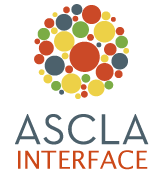By Sherrie Kristin, Acquisitions, The Library, Purdue University Calumet
It is hard to imagine a library where someone is unable to read the great works in literature or fiction, to take advantage of the wealth of information in databases and journals or to research and write a paper independently. But for some students at Purdue University Calumet, this was the challenge they faced. Our staff saw this as an unnecessary hurdle for our students who were differently-abled.
This is where our journey began. We did research on the available software and hardware, we had meetings with various groups, both internal and external, we saw demos of products; and we consulted hardware technicians to determine what our requirements would be. Our plan was developed. We would provide the right technology to accommodate the widest range of differently-abled students. In addition, this technology would be available in one of the most frequently accessed areas in the library: reference.
Thus, our Adaptive Computer Center for Effective Special Services (ACCESS) Cluster was born. The ACCESS Cluster contains four electronic button-controlled, height adjustable tables—each equipped with a computer, scanner, headphones (with and without microphones), keyboard tray, keyboard and mouse. A phone on each table connects directly to the reference desk so that at any time the patron can access assistance from the Library staff. On the outside, these computers look much like all others, but where it counts these computers open the doors to literature, research, writing, and the Internet, and provide the essential tools to ensure student success.
All four of the computers provide services across the broad spectrum of adaptation. For our students who are visually impaired, all computers in the ACCESS Cluster are equipped with MagicTM, screen magnification software that will allow for magnification of the desktop and all applications from two to sixteen times the original size.
Two of the computers are also equipped with JAWSTM screen reading software, Kurzweil 1000TM reading software and Braille keyboards. JAWSTM benefits a user with low visual acuity or who is blind by translating the computer desktop, programs and applications from visual to spoken using a voice synthesizer. The user may also select the voice type and reading speed they are most comfortable listening to.
To enable patron access to written works, these two computers also have Kurzweil 1000TM reading software. Kurzweil 1000TM enables printed materials to be accessible to our students who are visually impaired through the use of a scanner and voice translation. Like JAWSTM, this program also allows customization of the reading voice, including options for a variety of lifelike voices and variable reading speeds.
The other two computers in the ACCESS Cluster are used to assist with learning disabilities such as cognitive issues, physical limitations and comprehension. These computers have Kurzweil 3000TM reading, writing and learning software. Written text is converted to an electronic document so that the Kurzweil 3000TM suite of tools can be used to highlight text as it is read, make reminder notes to text for reference and verbally repeat the text until the user is satisfied with the result. This enables the user to determine what is important to them; the speed in which the information is conveyed; and the format it is presented in, i.e. word by word, line by line or a paragraph at a time. One of these computers is also equipped with Dragon Naturally SpeakingTM, voice-activated and controlled software, enabling the user to activate the desktop and applications without the use of their extremities. By speaking into the microphone and reading some prewritten text a voice file is created and the user is recognized by DragonTM, and can proceed to dictate a paper, visit websites and check email. Each time the patron uses the computer the voice file is updated, so it becomes more robust with each use.
Ultimately, this cluster of four computers helps our students adapt and overcome obstacles that would otherwise keep them from using the wealth of information in our resources, both internal and external and help them to achieve success in their college experience. As with all endeavors this one requires detailed planning, funding, flexibility, some training, testing, and patience. No project goes exactly as planned and this one didn’t either, but it turned out better than we planned. Those interested in more detailed information should contact Sherrie Kristin at Kristin@purduecal.edu.
